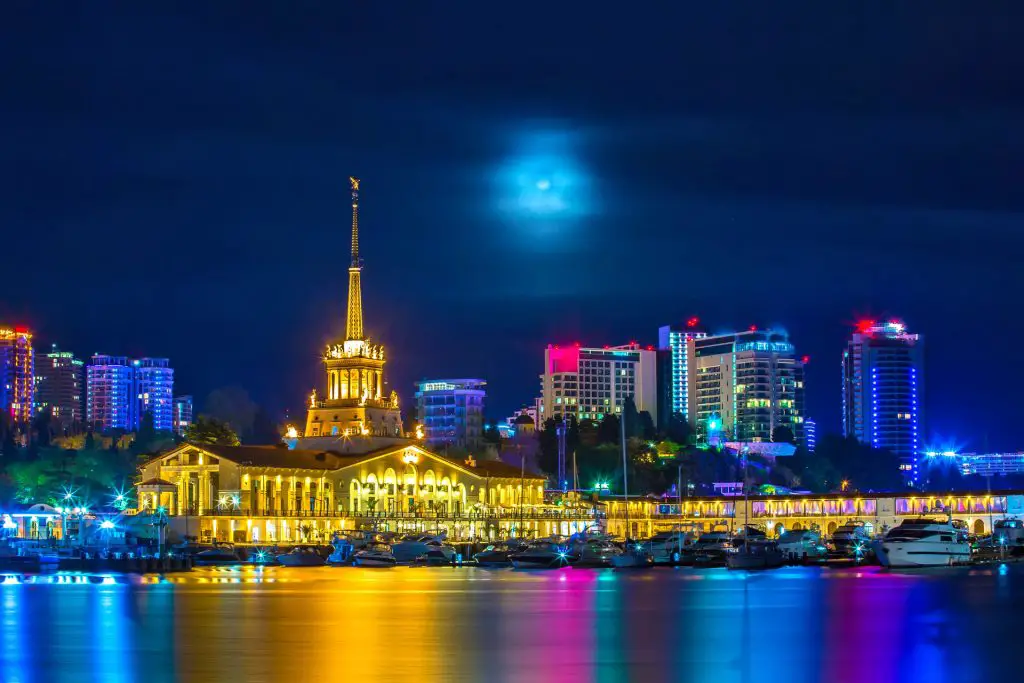In late October, the Russian city by the Black Sea, Sochi will host the Russia-Africa Summit, co-chaired by President of the Russian Federation Vladimir Putin and President of the Arab Republic of Egypt Abdel Fattah el-Sisi, who also heads the African Union.
This is the first time such an event is being organized with growing interest from Moscow of trade, politics, and development of Africa, amid murmurs from US and allies on the role both Russia and China are playing in Africa.
The announcement which was made by Russia said special attention will be paid to the current state and prospects of Russia’s relations with African countries and to the expansion of the political, economic, technical and cultural cooperation.
Equally, it is planned to discuss a wide range of issues on the international agenda, including joint response to new challenges and threats, and the strengthening of regional stability. “At the end of the meeting, the participants are to adopt a political declaration on the key areas of Russian-African cooperation,” the statement released last May.
It is expected that the first Russia-Africa Economic Forum, held as a part of the Russia-Africa Summit in Sochi, will be attended by representatives of international business and government structures of Russia and Africa.
Even before this announcement, top US diplomat John Bolton was quoted saying of Russia in Africa, “advances its political and economic relationships with little regard for the rule of law or accountable and transparent governance.”
Soon after the announcement of the Sochi Summit, various African heads of governments welcomed this initiative as a key addition to African partnership with the world. Namibian Deputy Minister of International Relations and Cooperation Christine //Hoebes commended Russian President Vladimir Putin for taking the initiative to host the first Russia-African Summit.
Russia’s trade with Africa increased from $5.7 billion in 2009 to $17.4 billion in 2017, and the country has been aggressively promoting nuclear infrastructure and technology partnerships.
America has seen the growing friendship between Africa and Russia and in extension China as a threat to its global hold on development. A report published by US publication The Intercept quotes a document by former head of U.S. Africa Command, Marine Corps Gen. Thomas Waldhauser describing an Africa ever more likely to fall under the sway of Beijing and Moscow — with Russia exerting influence in as many as 10 different African countries and China likely to open more bases across the continent.
Nuclear energy and investments top the lists of Russian influence in Africa. The largest project is state-owned Rosatom’s 4.8 GW El Dabba nuclear power plant in Egypt, which began in 2015 with an investment of $30 billion.according to Eurasia Review.
Once completed in 2025, Rosatom will run the project with its Egyptian partner, Nuclear Power Plants Authority, for 10 years, after which it will transfer to Egypt. In 2016, Nigeria signed an agreement for installing 4.8 GW of nuclear power over the next two years, which will help fill Nigeria’s 7 GW power shortfall.
Eurasia Review says Rosatom’s investments run deep; they include research and development partnerships in nuclear power with Egypt, Ethiopia, Nigeria, South Africa, Sudan and Tanzania. In just four years, Rosatom has replaced former French conglomerate Areva as the leading provider of civil nuclear energy in Africa, signing at least 22 MoUs and inter-government agreements with 13 African countries.











